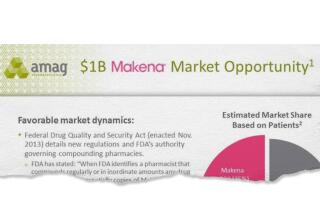2 Heart Drugs Are Withdrawn After Death Rate Rises
- Share via
WASHINGTON — Two drugs that have been studied for nearly two years in heart attack patients to control potentially dangerous cardiac arrhythmias in fact may contribute to fatal heart attacks and should only be used in life-threatening situations, federal health officials announced Tuesday.
Officials at the National Heart, Lung and Blood Institute and the Food and Drug Administration said that both drugs have been removed from an ongoing clinical trial of heart attack patients after a greater than expected number of deaths occurred in patients receiving the drugs.
“The association is strong,” said Michael White, the institute’s associate director for prevention, education and control. “People on the drugs had more arrhythmic deaths and heart attacks--nearly three to one--than those on placebo. That alone was sufficient to have our folks get our patients off these drugs.”
The drugs, which decrease or prevent arrhythmias--irregularities in the heart rhythm arising in the organ’s major pumping chambers--have been used to treat patients with severe life-threatening arrhythmias and also have been given to patients with less severe, but symptomatic arrhythmias.
The study was designed to determine whether the drugs could improve the survival of all heart attack patients. “The results indicated the contrary,” White said.
As a result, federal health officials recommended that the drugs, flecainide, marketed as Tambocor by 3M Riker, and encainide, sold as Enkaid and made by Bristol-Meyers Co., should no longer be used in patients other than those who have severe, life-threatening arrhythmias. Both drugs have been available by prescription.
Dr. J. Thomas Bigger Jr., chairman of the trial’s steering committee, said that physicians still should use the drugs in treating patients with severe arrhythmias because the risk from cardiac death in those cases was greater than the risk of using the drug. “We are faced with a sudden death every minute in this country due to arrhythmia,” he said.
Dr. Claude Lenfant, director of the institute--which is part of the National Institutes of Health--said that clinical trials occasionally will show something other than the benefits of an experimental drug or therapy being studied.
“When this happens, the results may be just as important, or even more important than findings suggesting benefits,” he said.
A third drug under study, moricizine, which is not yet available on the market, did not demonstrate the same adverse effects, they said.
Heart disease is the leading killer of men and women in this country. Up to 1.5 million Americans will suffer heart attacks this year, with more than 500,000 deaths, according to the institute. In persons with heart disease, the presence of some types of irregular heart beats involving the heart’s main pumping chamber, the ventricle, can greatly increase the patient’s risk of sudden cardiac death, the institute said.
Preliminary results of the trial, which involves about 1,500 patients at 23 centers in the United States, Canada and Sweden, showed that among the 730 patients assigned to encainide or flecainide and treated an average of about 10 months, 56 had died or suffered cardiac arrest, while among the 725 given a placebo--a medically worthless pill--22 had died or suffered cardiac arrest. Members of an independent safety monitoring board reviewed the data last week and recommended that the two drugs be withdrawn.
“I was truly stunned and shocked when presented with the results,” said Bigger, professor of medicine at Columbia University College of Physicians and Surgeons.
FDA officials estimated that about 200,000 people are now taking these two drugs, a majority of them believed to have non-life-threatening arrhythmias.
The manufacturers of the two drugs shortly will send so-called “Dear Doctor” letters to physicians around the country advising them of the new findings.
However, FDA Commissioner Frank Young emphasized that “patients should not stop these drugs by themselves if they are on them. They should consult with their doctors.”
More to Read
Sign up for Essential California
The most important California stories and recommendations in your inbox every morning.
You may occasionally receive promotional content from the Los Angeles Times.













